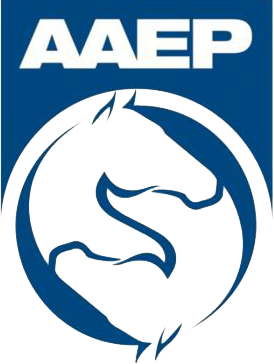Owner Articles
Articles that Hess Equine Veterinary Services recommends to their clients. Articles have been provided by AAEP and reprinted with their permission.
If you own horses long enough, sooner or later you are likely to confront a medical emergency. From lacerations to colic to foaling difficulties, there are many emergencies that a horse owner may encounter.
A healthy foal will grow rapidly, gaining in height, weight and strength almost before your eyes. From birth to age two, a young horse can achieve 90% or more of its full adult size, sometimes putting on as many as three pounds per day.
Reconditioning and rehabilitation of the horse recovering from lameness should be done throughfully and gradually with purpose and only on the advice of a veterinarian. All work should initially be conducted on straight lines with no circling (which also means no lunging) and taking special care not to ride deep into the corners if riding in an arena.
If your mare has made it through 11 months of pregnancy, you're almost home free. Labor and delivery, while momentous, are generally uneventful. In most cases, you will simply need to be a quiet observer - if, that is, you are lucky enough to witness the birth.
Equine Protozoal Myeloencephalitis (EPM) is a master of disguise. This serious disease, which attacks the horse's central nervous system, can be difficult to diagnoise because its signs often mimic other health problems in the horse and signs can range from mild to severe. More than 50 percent of all U.S. horses have been exposed to the parasite that causes EPM.
The number one killer of horses is colic. Colic is not a disease, but rather a combination of signs that alert us to abdominal pain in the horse.
As a horse owner, you play an important role in controlling your equine companion's weight. Sound nutrition management, a regular exercise program and veterinary care are key to keeping your horse fit and healthy.



